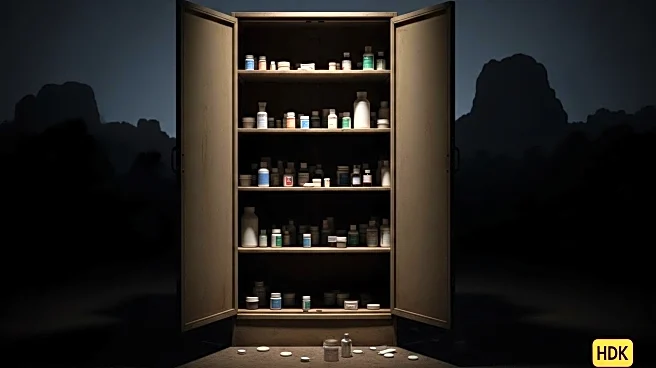What's Happening?
Over 200 health facilities in eastern Congo are experiencing critical shortages of medicines due to ongoing conflict and insufficient humanitarian funding. The International Committee of the Red Cross has assessed 240 health centers in North and South Kivu, where the Rwanda-backed M23 rebels have advanced significantly. The conflict has exacerbated one of the world's largest humanitarian crises, with around 7 million people displaced. The shortage of essential medicines for diseases like malaria, HIV, and tuberculosis is putting thousands of lives at risk. Many health workers have fled the region, leading to staff shortages in nearly half of the facilities.
Why It's Important?
The medicine shortages in eastern Congo highlight the severe humanitarian impact of the ongoing conflict. The inability to access essential healthcare services threatens the lives of millions and could lead to a public health crisis. The situation underscores the need for increased international humanitarian aid and support to address the healthcare needs of the affected population. The conflict in Congo has broader implications for regional stability and security, as it involves multiple armed groups and has displaced millions.
What's Next?
Efforts to secure humanitarian funding and support for health facilities in eastern Congo are critical to addressing the medicine shortages. The international community may need to increase its involvement to provide necessary resources and support peace efforts. The Red Cross and other humanitarian organizations are likely to continue advocating for increased funding and access to healthcare services. The situation remains precarious, with ongoing clashes and the potential for further displacement and humanitarian needs.
Beyond the Headlines
The crisis in eastern Congo raises ethical and legal questions about the responsibility of the international community to intervene and provide humanitarian aid. The conflict's impact on healthcare access highlights the broader challenges of delivering aid in war-torn regions. The involvement of Rwanda-backed rebels adds a geopolitical dimension to the conflict, influencing regional relations and stability. The long-term effects of the crisis could include increased migration and further destabilization of the region.








